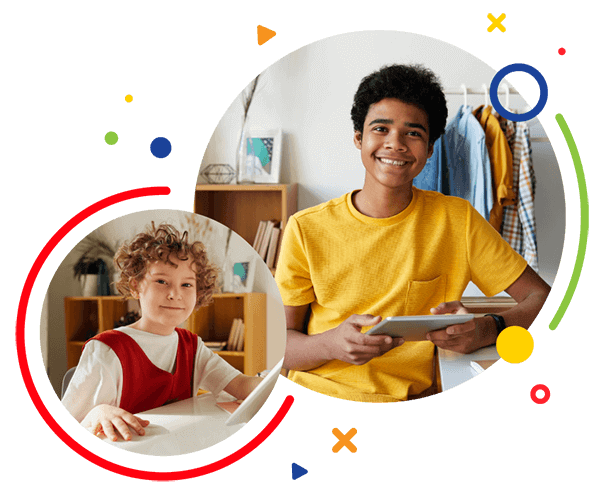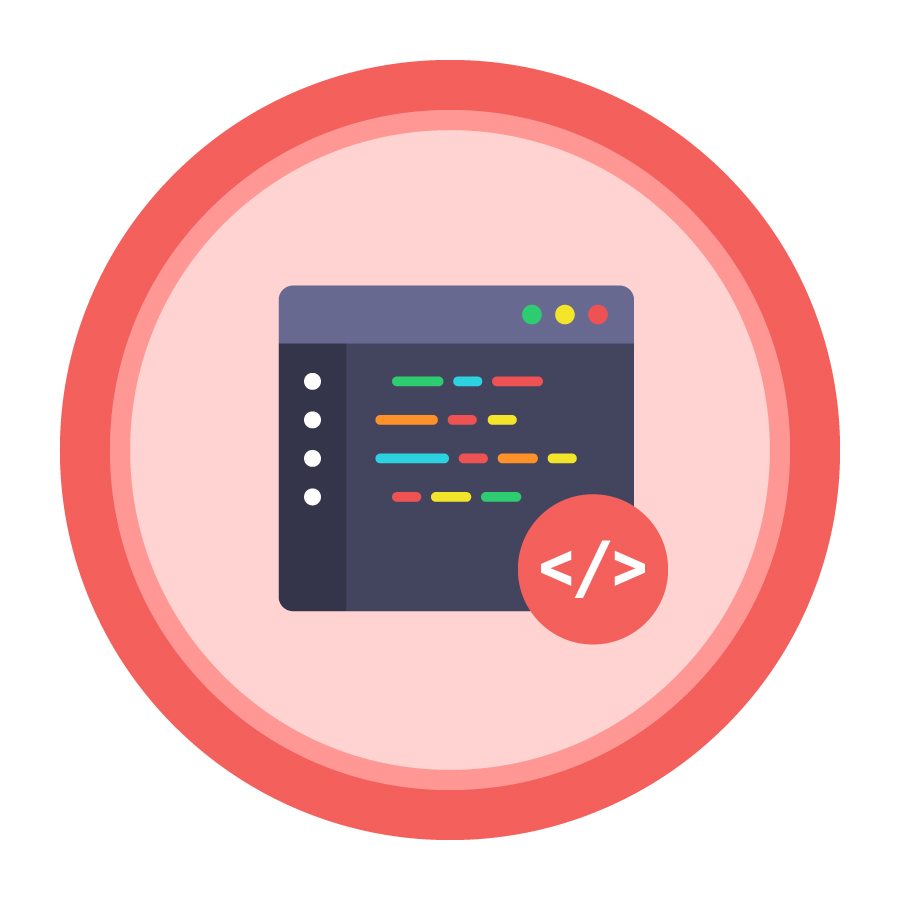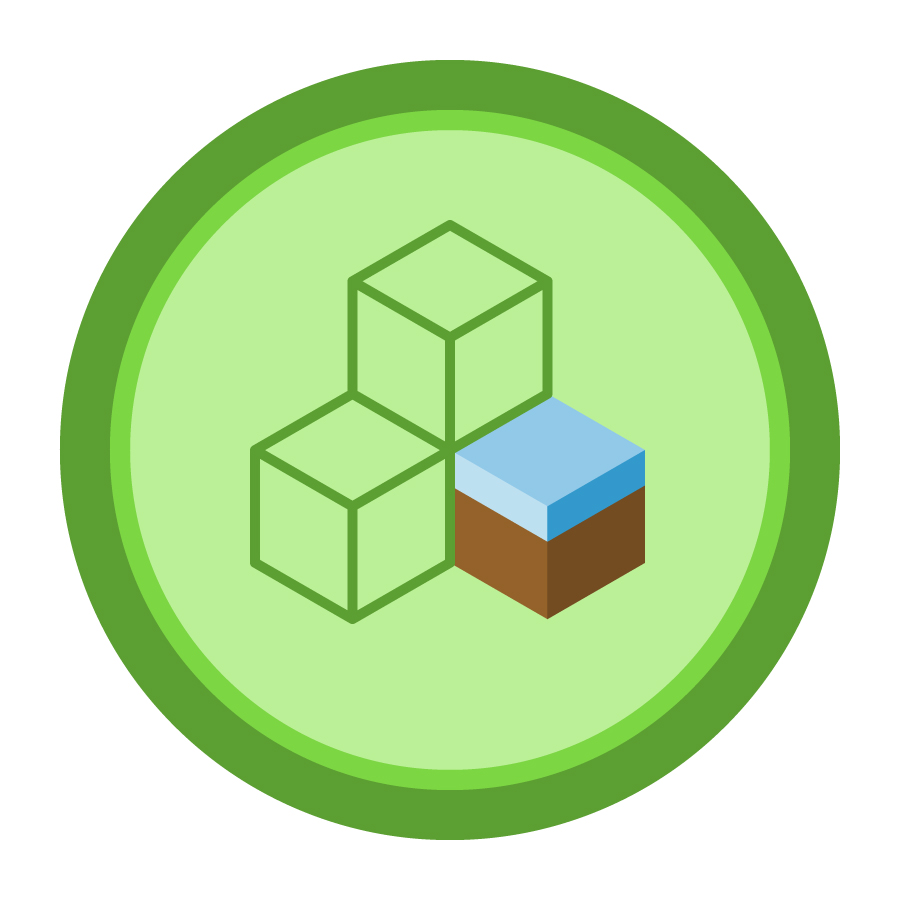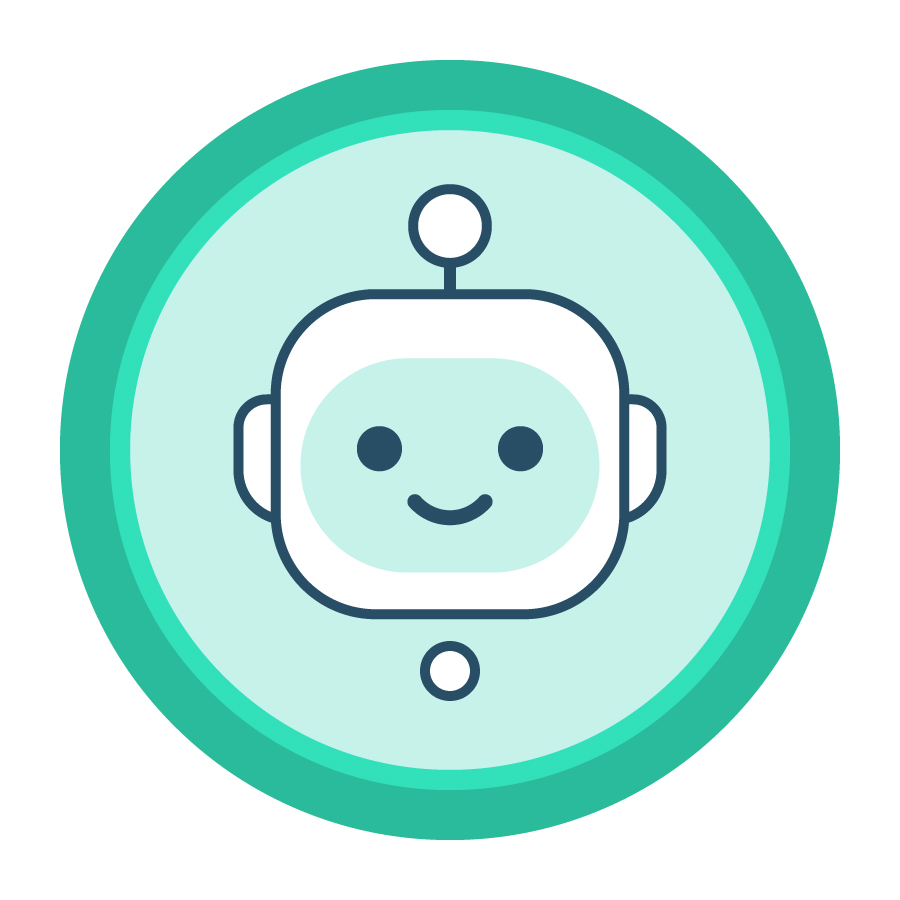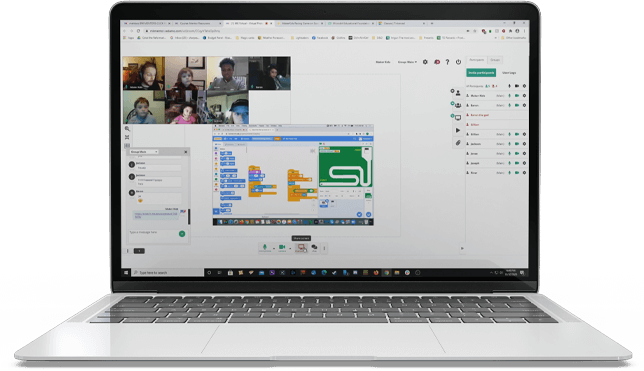


We use technology as a tool to teach kids valuable social-emotional skills.
MakerKids runs award-winning programs on coding, robotics and Minecraft.
Our proprietary, project-based curriculum with live, real-time instruction embeds lessons that help kids build: EQ, Confidence, Social Skills, Resilience and a Positive Relationship with Technology
And it’s a lot of fun, too!
MakerKids is a specialized, psychology-based program. The program is designed to strengthen and build social-emotional skills so your child can find success and unleash their untapped potential.

Our program is a psychology-backed, whole-child approach to social-emotional skills development. Our staff are experienced in working with kids with autism, ADHD, anxiety, and more.
Your program includes measurable improvements in your child’s progress toward your goals. The program helps address a child’s needs, building progressively as they advance.
Improvements you see in the program lead to improved social-emotional behaviors and habits at home, in school, and eventually in careers.
Your child’s mentor will support them while teaching them about social-emotional skills.
Proprietary social-emotional training challenges participants through creativity, initiative and social activities
Programs that encourage kids
to be themselves

Real-World Technical Skills
Kids learn industry-leading technologies, equipping them for high-earning careers of the future.
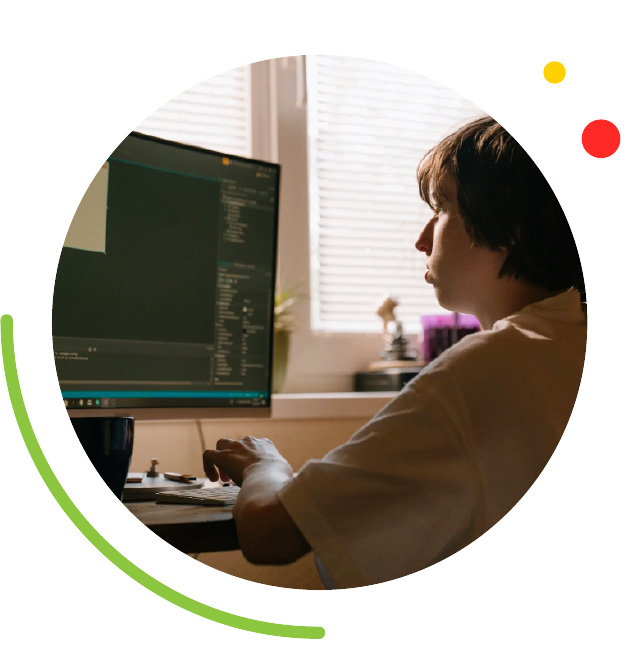
Putting Projects into Practice
Kids don’t just learn programming concepts – they get to use them to make real projects like games.

Confidence & Social Skills
Embedded in all our programs are social skill lessons, and the chance for kids to socialize with like-minded peers.

A Positive Approach To Tech
We want every child to leave MakerKids with the belief that they can use technology to shape the world around them.
Social-Emotional Skills Practice
for Students of Diverse Abilities
We offer unique social-emotional skills-based programs geared towards kids who love computer games and could use some extra practice building friendships and other social-emotional skills. Kids will learn some important social-emotional skills and practice making friends through fun and interactive coding, robotics and/or Minecraft activities. Target skills may include asking questions to peers, maintaining a conversation, cooperating to make group decisions and being more flexible when playing with peers.
Participating in MakerKids programs is a fun and social way for kids to gain fundamental technical skills. As kids become more adept at navigating and modifying the interfaces they are presented with, new challenges such as learning to code turns the experience into even more of an educational platform to help build transferable technical skills.
While we leverage kids’ interest in technology as a gateway to introduce them to other STEM topics, just as important in a cooperative group environment is the opportunity for teaching positive netizen, teamwork, and communication skills.
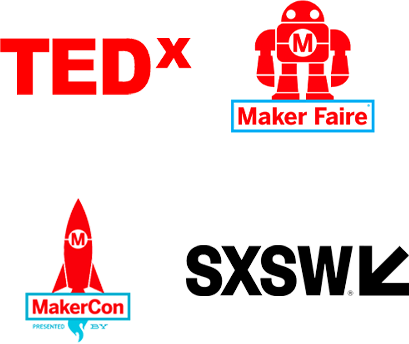
MakerKids founded the first makerspace for kids in the world in 2010, and went on to pioneer an industry and transform education. Today, kids can access MakerKids’ award-winning programs on Coding. Minecraft and Robotics from the comfort of their own home.
We’ve been invited to give talks about our work around the world, at SXSW, MakerCon, Maker Faire, TEDx and more. We have also written a book about our work, called Every Child A Maker – as well as a children’s book called The MakerKid.
We’ve trained educators and helped school boards and libraries implement makerspaces.
We’ve run programs for Google and Twitter, for their employees’ kids.
Your child will experience award-winning curriculum built by engineers, entrepreneurs, and graduates of the Singularity University program at NASA, and refined over 11+ years.
